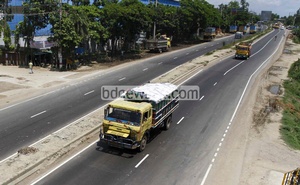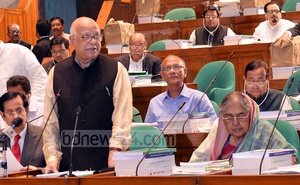Shah Syed Abdul Bari, DMD, Head of HRD of National Bank Limited, presiding over a workshop on "Prevention of Money Laundering and Combating the Financing of Terrorism" at the bank training institute in the city recently. A total number of 60 officers of d
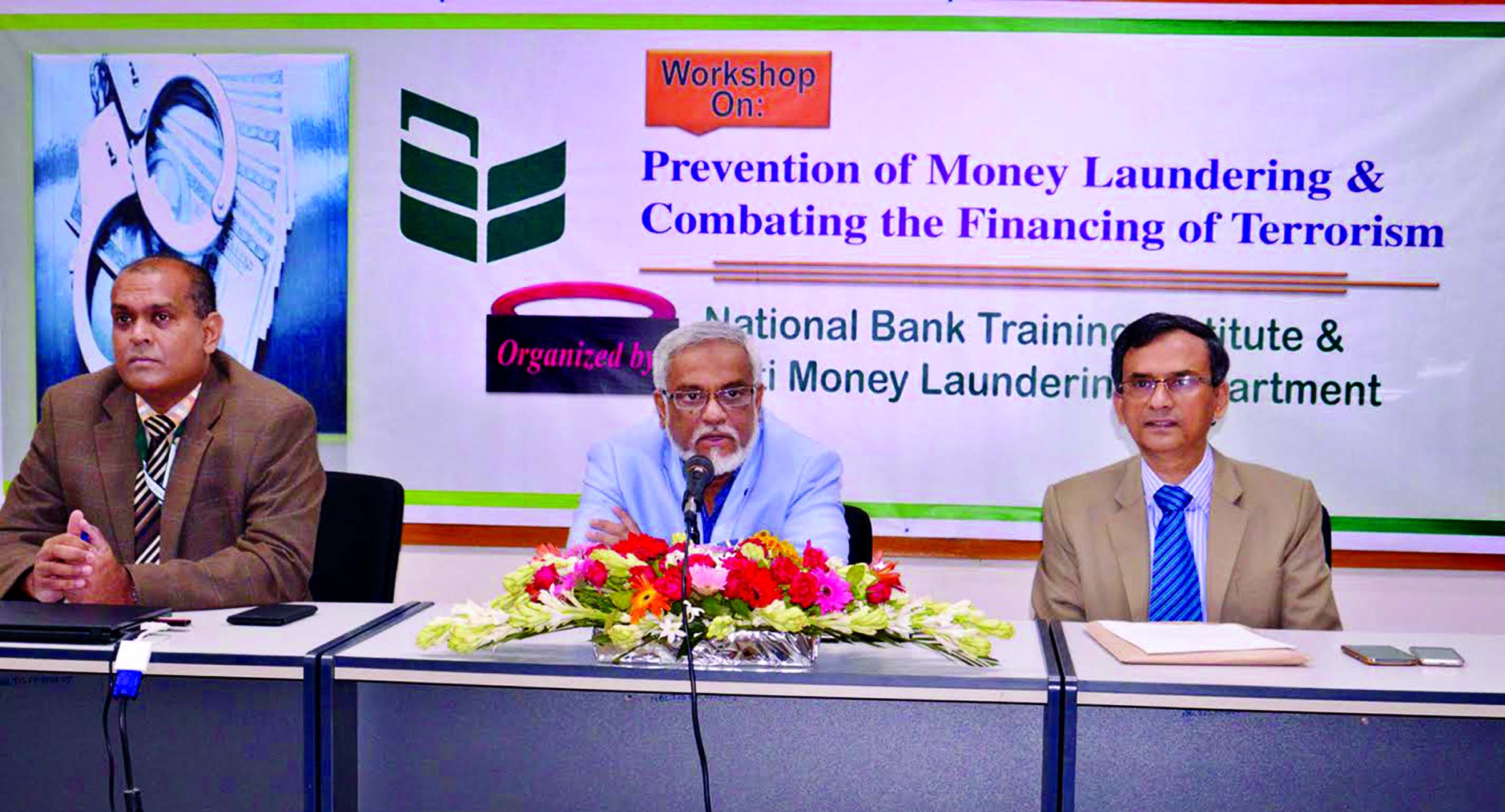 Shah Syed Abdul Bari, DMD, Head of HRD of National Bank Limited, presiding over a workshop on \"Prevention of Money Laundering and Combating the Financing of Terrorism\" at the bank training institute in the city recently. A total number of 60 officers of
Shah Syed Abdul Bari, DMD, Head of HRD of National Bank Limited, presiding over a workshop on \"Prevention of Money Laundering and Combating the Financing of Terrorism\" at the bank training institute in the city recently. A total number of 60 officers of
Md. Abdus Sabur Khan, Head of Cards of Southeast Bank Limited and (Dr.) Khan Md. Asadulla Hel Galib, Brig. Gen. (Retd.), Medical Director of LABAID Group, sign an agreement in the city recently. Under this deal, the bank's card holders can avail up to 15p
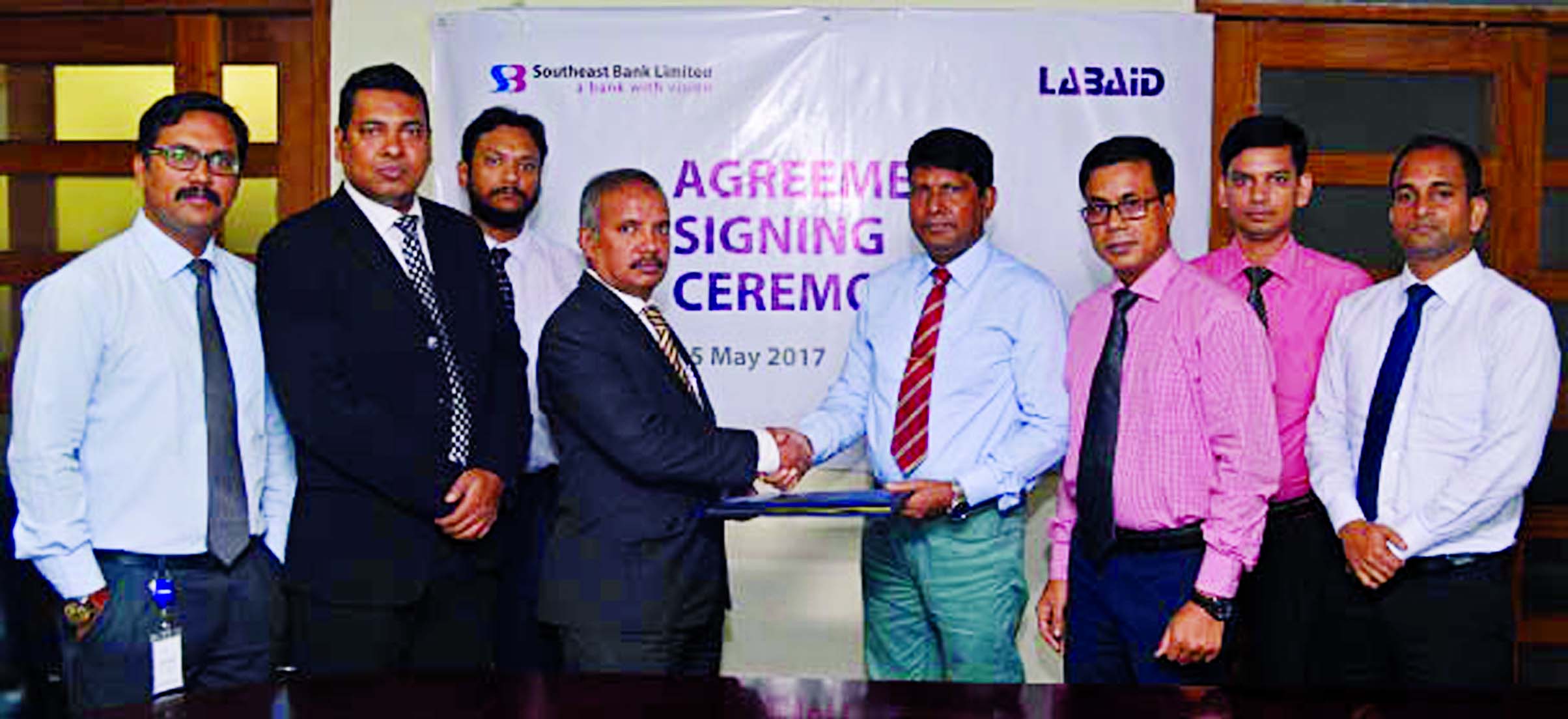 Md. Abdus Sabur Khan, Head of Cards of Southeast Bank Limited and (Dr.) Khan Md. Asadulla Hel Galib, Brig. Gen. (Retd.), Medical Director of LABAID Group, sign an agreement in the city recently. Under this deal, the bank\'s card holders can avail up to 15
Md. Abdus Sabur Khan, Head of Cards of Southeast Bank Limited and (Dr.) Khan Md. Asadulla Hel Galib, Brig. Gen. (Retd.), Medical Director of LABAID Group, sign an agreement in the city recently. Under this deal, the bank\'s card holders can avail up to 15
Abrar A. Anwar, Chief Executive Officer of Standard Chartered Bank Bangladesh and MJMN Marikkar, Managing Director of Raj Lanka Power Company Ltd, posing at a ceremony of preference share transaction arrangement of Tk1.60b for Raj Lanka Power Company Limi
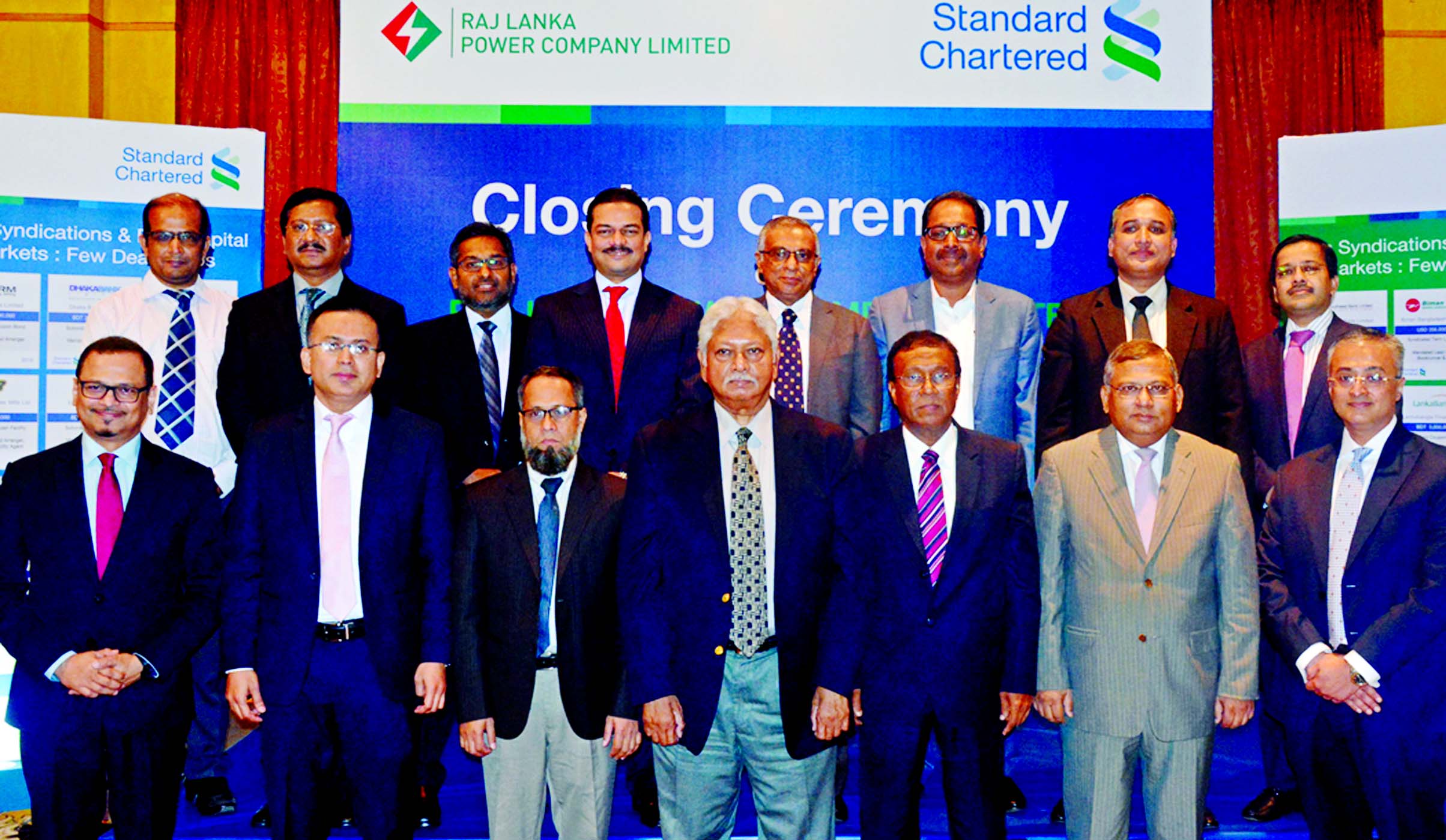 Abrar A. Anwar, Chief Executive Officer of Standard Chartered Bank Bangladesh and MJMN Marikkar, Managing Director of Raj Lanka Power Company Ltd, posing at a ceremony of preference share transaction arrangement of Tk1.60b for Raj Lanka Power Company Limi
Abrar A. Anwar, Chief Executive Officer of Standard Chartered Bank Bangladesh and MJMN Marikkar, Managing Director of Raj Lanka Power Company Ltd, posing at a ceremony of preference share transaction arrangement of Tk1.60b for Raj Lanka Power Company Limi
Bangladesh infrastructure is world’s costliest, says World Bank
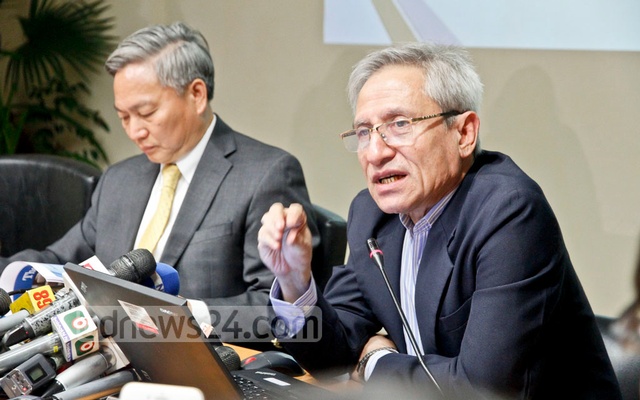
World Bank economist Zahid Hussain speaks at a press conference in office in Dhaka’s Agargaon on Tuesday. Seated next to him is Qimiao Fan, World Bank’s country director in Bangladesh.
BB asks banks to help landslide victims
Bangladesh Bank has advised all scheduled banks to distribute relief and financial assistance among the people affected by the recent landslides in Chittagong hill tracts areas.
Banks were asked to help them under corporate social responsibility activities and show such expenditure in the balance sheet as spending in social projects or community investment sector, the banking regulator said in a statement yesterday.
As of yesterday, 150 people, including four army men, were killed in the landslide and the death toll may rise as the rescue operation has not yet come to an end.
news:daily star/20-jun-2017



